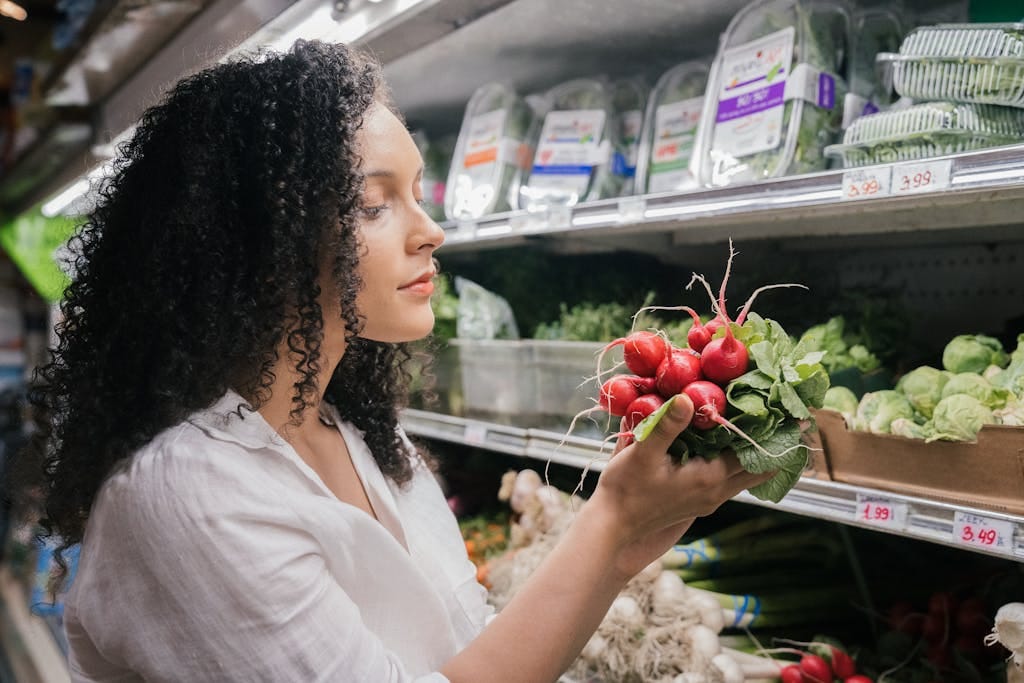FREE SHIPPING OVER $50
10 Popular Vegetables That Aren’t as Good for You as You Think (And 10 Smarter Swaps)
When it comes to healthy eating, vegetables are usually the first thing that comes to mind. But not all vegetables are created equal. Some popular veggies that seem like a no-brainer at the grocery store may actually be hiding sneaky downsides like high starch content, excess sugar, or bloating potential. Before you load up your plate, it’s worth knowing which vegetables aren’t doing you as many favors as you thought—and which ones make much smarter swaps for your health goals.
Let’s dive into the 10 vegetables that aren’t as good for you as you might believe—and the 10 better choices to add to your next meal.
10 Vegetables That Aren’t as Good as You Think

1. Iceberg Lettuce: Choose Spinach Instead
Iceberg lettuce is basically crunchy water. While it’s low in calories, it’s also low in nutrients. You won’t get much fiber, antioxidants, or vitamins from it.
Spinach is a far better swap. It’s rich in iron, vitamin K, magnesium, and powerful antioxidants that can help fight inflammation and support bone health. Plus, it’s incredibly versatile in smoothies, salads, and even omelets.
2. Corn: Choose Broccoli Instead
Corn is often seen as a healthy side dish, but it’s technically a grain that’s high in sugar and carbohydrates. Eating too much corn can spike your blood sugar levels and leave you feeling sluggish.
Broccoli is a smarter swap. Packed with fiber, vitamin C, and sulforaphane (a compound that may help protect against cancer), broccoli fills you up and supports digestion without the carb crash.
3. White Potatoes: Choose Sweet Potatoes Instead
White potatoes aren’t the worst, but when fried or loaded with butter and sour cream, they lose their nutritional value fast. They’re high in starch, which can spike insulin levels.
Sweet potatoes offer a nutrient-dense alternative. They’re full of fiber, vitamin A (from beta-carotene), and have a gentler effect on blood sugar. Plus, they’re delicious roasted, mashed, or baked.
4. Peas: Choose Asparagus Instead
While peas have some protein and fiber, they are also relatively high in sugar and carbohydrates compared to other green veggies. This can be a problem if you’re trying to control blood sugar.
Asparagus steps in as a low-sugar, nutrient-dense swap. It’s loaded with folate, vitamins A, C, and K, and acts as a natural diuretic, helping reduce bloating.
5. Celery: Choose Cucumber Instead
Celery is refreshing and crunchy, but it’s low in essential nutrients. Beyond a little fiber and water, it doesn’t offer much bang for your buck.
Cucumber provides more hydration and a richer profile of antioxidants like cucurbitacins, which may help fight inflammation. It’s also a little easier on the digestive system for some people.
6. Beets: Choose Carrots Instead
Beets are colorful and nutrient-packed, but they’re also surprisingly high in sugar. For anyone watching their blood sugar or trying to lose weight, beets might not be ideal in large quantities.
Carrots are a smarter pick if you’re looking for a lower-sugar option that still delivers fiber, beta-carotene, and crunch. Plus, they’re super portable for on-the-go snacking.
7. Eggplant: Choose Zucchini Instead
Eggplant has a great texture for cooking, but it can sometimes be tough to digest due to compounds called solanine and oxalates, which might irritate sensitive stomachs.
Zucchini offers similar versatility with fewer digestive side effects. It’s low in calories, easy to digest, and rich in vitamin C and potassium. It’s also fantastic grilled, roasted, or spiralized into noodles.
8. Canned Vegetables: Choose Fresh or Frozen Instead
Canned veggies are convenient, but they often come packed with sodium and preservatives that can work against your heart health and blood pressure.
Fresh or frozen vegetables are a no-brainer swap. They retain more nutrients, contain no added chemicals, and generally taste much better. Plus, frozen veggies are just as convenient with a longer shelf life.
9. Pumpkin (Canned with Sugar): Choose Fresh Pumpkin or Squash Instead
Pumpkin is often marketed as a superfood, but many canned versions are packed with added sugars and syrups that can sabotage your healthy intentions.
Fresh pumpkin or butternut squash makes a better alternative. Both are high in fiber, vitamins A and C, and naturally low in sugar, offering all the benefits without the sneaky additives.
10. Pickled Vegetables (High in Sodium): Choose Fermented Vegetables Instead
Pickled vegetables might seem like a tangy, healthy snack, but they’re often high in sodium, which can increase blood pressure and cause water retention.
Fermented vegetables like sauerkraut, kimchi, and fermented cucumbers offer the same tang with gut-boosting probiotics and significantly less processed salt. They support digestion and boost your immune health at the same time.
Why Choosing the Right Vegetables Matters
The truth is, even healthy eating can have hidden pitfalls. Choosing nutrient-dense, lower-sugar, high-fiber vegetables not only keeps you fuller for longer but also supports stable blood sugar, a stronger immune system, better digestion, and even better weight management.
Many so-called “healthy” vegetables are still better than junk food, but if you’re aiming for optimal health, small changes—like swapping iceberg lettuce for spinach—can make a big difference over time.
How to Easily Make These Vegetable Swaps in Your Diet
Switching to smarter vegetable choices doesn’t have to feel overwhelming. Here’s a simple way to start:
- Plan Your Grocery List: Before you shop, swap out one or two low-value veggies for their nutrient-dense alternatives.
- Prep Ahead: Wash, chop, and store your veggies so healthy choices are ready to grab and use.
- Experiment with Recipes: Try new cooking methods like roasting, grilling, or stir-frying to bring out the natural flavors of smarter veggie choices.
- Prioritize Color: Generally, the more colorful the vegetable, the higher its antioxidant content.
- Listen to Your Body: Some vegetables that seem “healthy” might not sit well with your digestion. Choose the ones that leave you feeling energized, not sluggish.
Conclusion
Not all vegetables deserve the health halo they wear. By making smarter swaps, you can get more vitamins, minerals, fiber, and flavor without sacrificing convenience or satisfaction. Eating a variety of nutrient-packed vegetables will nourish your body better, support your long-term health goals, and maybe even make meal times a lot more exciting.
Related Articles
- Stop Heart Attacks Before They Start—These 10 Foods Are the Key
- This One Fruit Is Basically Nature’s Best Laxative, Say Dietitians
- Stop the Bloat: 5 Gut-Boosting Supplements That Actually Relieve Constipation, According to a GI Doctor
- Want Better Gut Health and More Protein? A Doctor Reveals the Surprisingly Simple Way to Get Both
- No More Candy or Soda? These States Want to Rewrite the Food Stamps Rulebook







